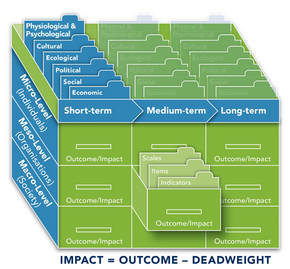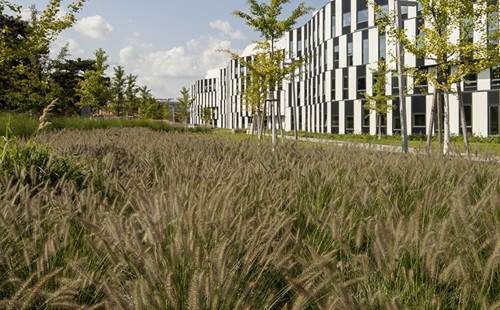Impact of public and associative youth work
Measuring and analysing the impact of youth work measures and activities is a challenge for many organisations and projects. Especially when it comes to measuring medium and long-term impacts, resources are often insufficient. Because of this and based on the findings of a previous project with the Austrian nationwide Network Open Youth Work (bOJA), the idea for the now completed project was born, which was funded by the Federal Ministry for Family and Youth.
The aim of the project was to identify the (overall social) impacts of public and association youth work on the basis of evidence. This means that the essential impacts of various measures of youth work and cross-measurement youth work were researched and located using scientific and grey literature. Subsequently, the literature research was supplemented by an active follow-up of unpublished results at the organisations or projects investigated. In order to be able to categorise and present the impacts on the basis of different dimensions, the concept of the impact box was applied.
The impact box levels of the impact analysis:

© Own graphic
The concrete impacts were identified on the basis of the dimensions of time (short, medium, long term), structure (micro, meso, macro) and content (economic, social, political etc.). In addition, where available, the method of impact measurement and the survey instruments used were recorded for the respective impacts. The identified impacts were also differentiated according to target groups and regional distribution of the measures examined.
Firstly, the relevant literature was researched in scientific databases and in relevant scientific journals. Secondly, relevant contributions to anthologies, monographs and specialist journals were consulted. Thirdly, effects were determined directly from the activity reports of individual organisations or projects.
Thus, a total of 1,380 impacts from 201 literature contributions published in the period 1999-2017 were identified and included in the impact box. The majority of these impacts originated from both English and German research reports and journal articles. These detailed impacts were divided into 19 main ones. In terms of content, these are in particular impacts that promote personal development and the acquisition of social and personal skills, but also know-how gain through the acquisition of various (technical) skills, through informal learning processes and through diversity-oriented and intergenerational learning. In addition to personality development and learning, particular importance is also attached to impacts on the promotion of participation, whether in the form of social or political participation, as well as improved participation and co-determination or social participation and inclusion. The identified impacts can be classified as follows according to the logic of the impact box:
To a considerable extent they are positive impacts that appeal more to individuals than to stakeholder groups and can therefore be located at the micro level.
As far as the temporal classification is concerned, the impacts are largely short- to medium-term.
In terms of content, most impacts can be classified in the dimensions "social" and "cultural" as well as "psychological/physiological".
Occasionally, impacts were also assessed in monetary terms, i.e. in monetary units. With regard to the methods used, it was found that both quantitative and qualitative approaches were used to a similar extent. Nearly one third of the literature contributions used a mixed methods approach.
At the end of the study there was a report and a filled impact box in the form of a database, in which the results of the literature research were collected. The results of the literature research are presented in a database, which is intended to serve as a working instrument for organisations and institutions of public and associative youth work. The results of the study were presented in November 2017 at the Federal Ministry for Family and Youth and are currently not published.
